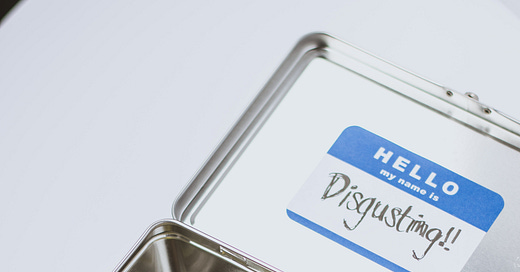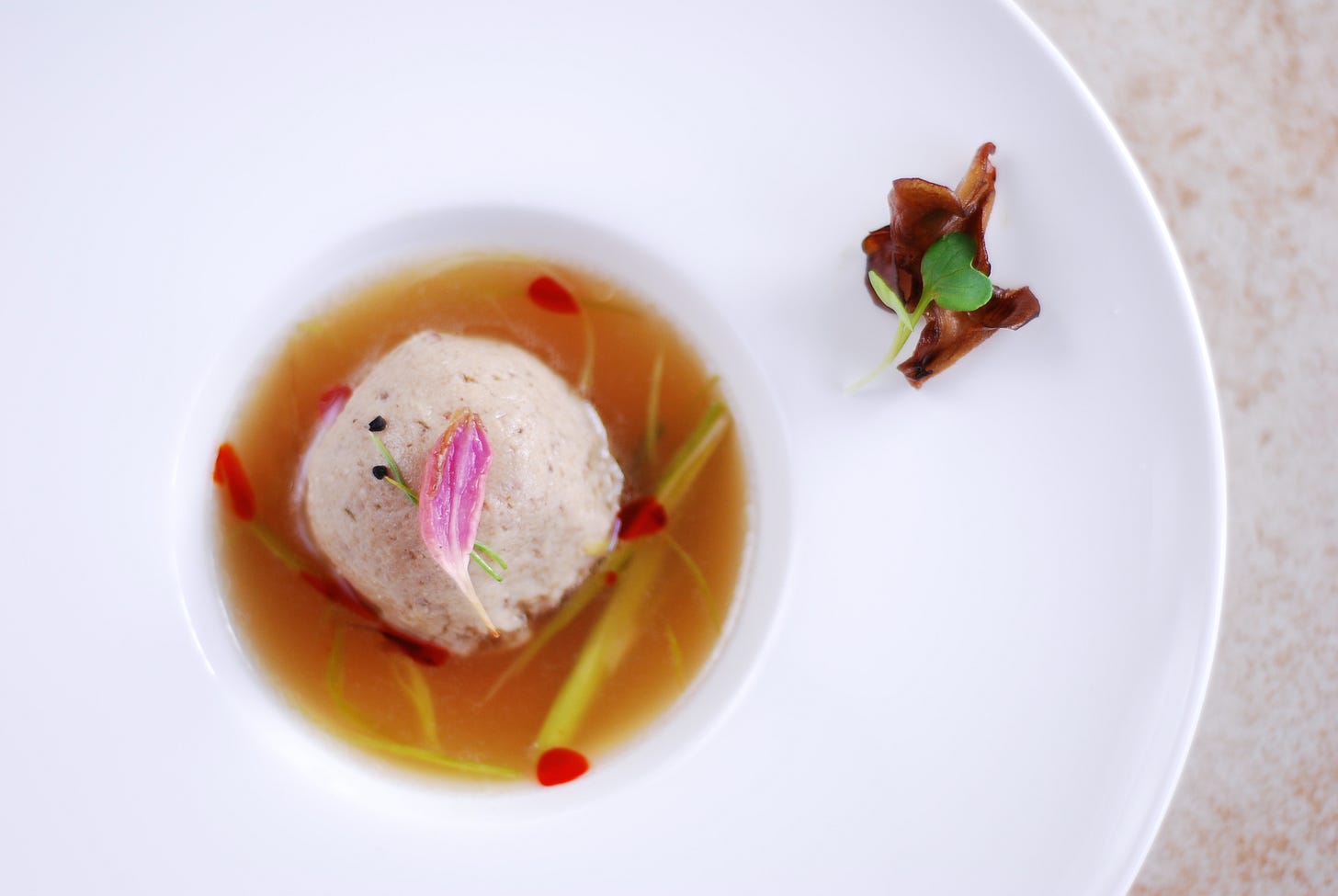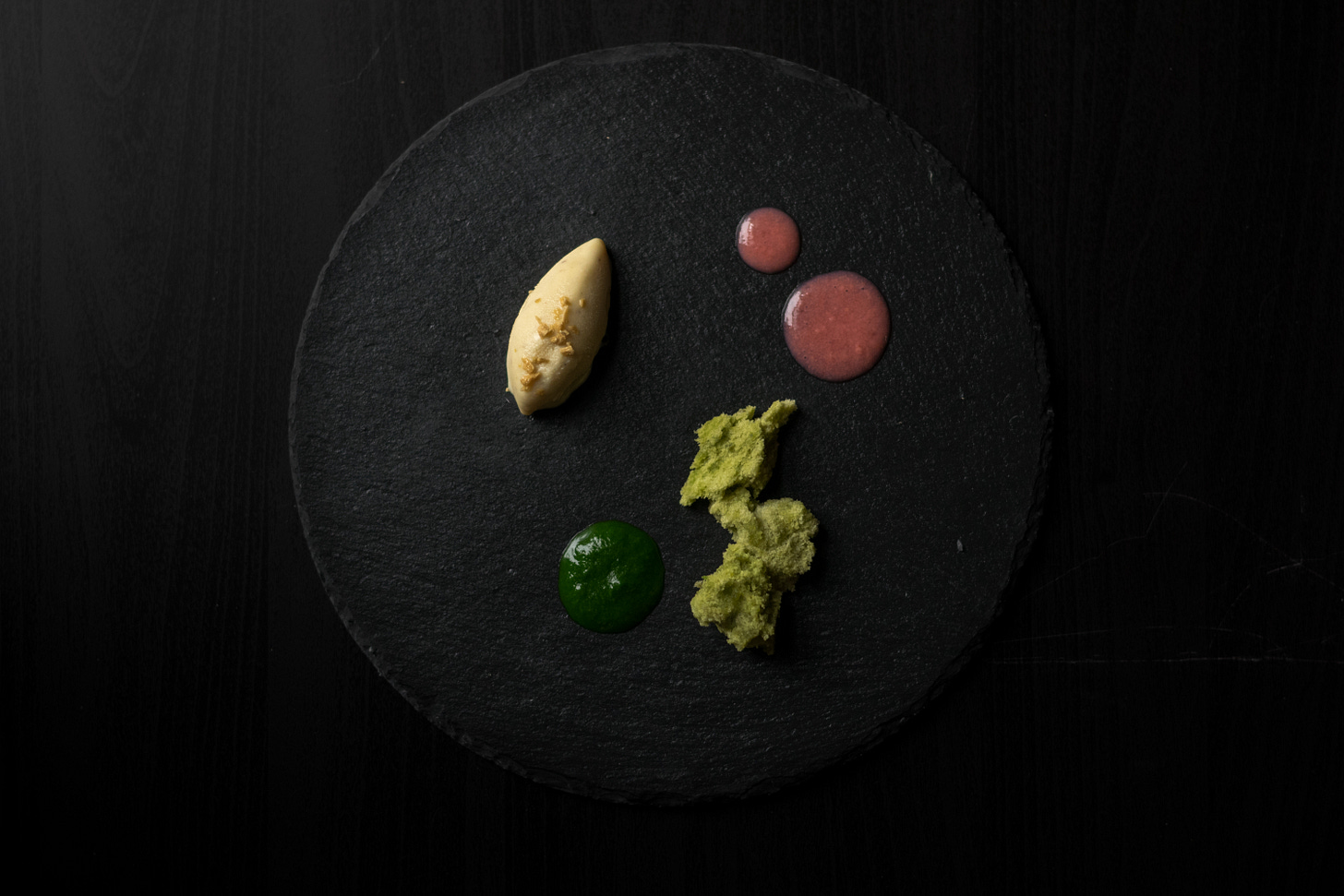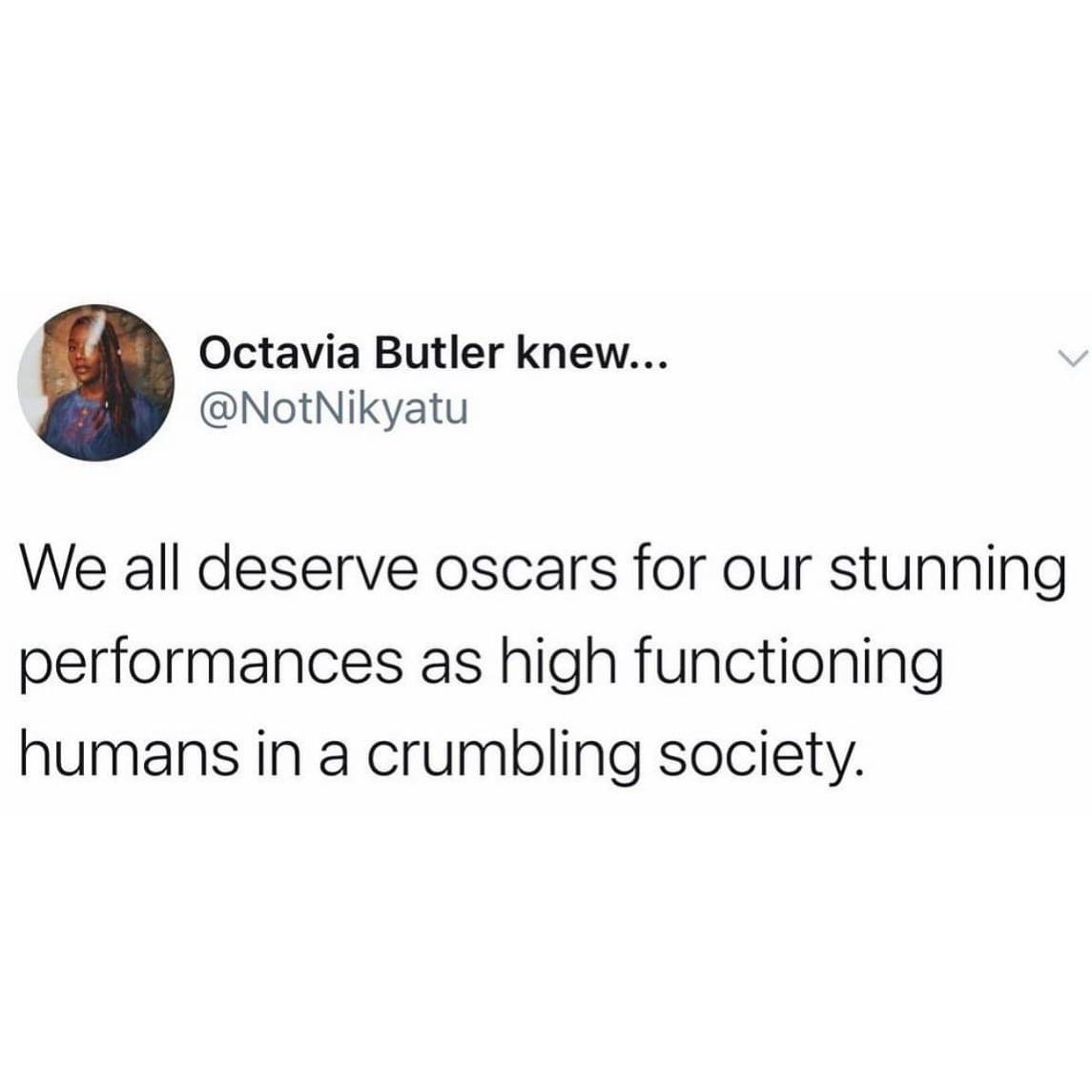A lot has changed since I wrote this piece, and yet much of it still hits home.
This is the essay that was meant to be published via Narratively back in 2018, but the prose struck my editor as “unnecessarily anthromorphosizing food” and was subsequently hacked at until it fit their parameters of what a personal essay “should” be like.
I was too fresh of a writer to argue back then, but now I feel a deep sense of sadness for not standing up for myself. This style of writing — my style of writing — is just as valid as the supposedly more “professional” piece that ran.
When I read this piece from the rearview, I almost envy its messiness, its imprecision of hurt, its frantic grammar longing for what’s next. I’ve learned that writing while in pain is very different from writing after being in pain. This presents a major conundrum for creatives who would like to preserve their mental health, all the while knowing that translating feelings into a new form is something that must happen in the present.
I don’t often read this piece because it still makes me cry. I hate realizing I’ve repeated the same mistakes I memorialized instead of triumphing over them. That I’m still overcome with insecurity whenever my writing takes on personal inflection, as if scrubbing my paragraphs clean of emotion were a measure of validity. That I feel deeply alone when I dream up new dishes, upending my entire kitchen in pursuit of an idea I can’t even explain.
Perhaps some works are meant to exist precisely because they are raw. Perhaps they are not meant to heal us, but to remind us of how we live.
But some things have changed, and my body is still playing catchup. My parents and I have reconnected, and our relationship is stabilizing. I came out as bi to my partner, and we just celebrated our 8th anniversary.
This piece also formed the basis of my TEDx, and comparing this piece to my speech, I’m really proud of how I’ve developed my voice in a way that still feels true to me. So today, I’m republishing this in hopes it’ll encourage someone to keep writing in whatever style they fucking want.
If you were served shame for dinner, what would it taste like?
For me, it starts with candy ham and the scent of summer. I’m 6. It’s my first day of camp, and the breeze of wood fire and pine trees gives the night a gentle warmth. I stab a thick slice of ham with my fork, hungrily wishing for chopsticks and thinking how odd it is to serve food so large and impossible to eat.
My teacher grabs my hand and waves it in the air for everyone to see. She’s angry, but I’m not sure why. “We do not eat like this. We have manners.”
I’m 11, and it’s summer again. I’m screaming at my mother, who refuses to let me buy school lunch. “We can’t afford it,” she pleads. Our household income has risen above the subsidy levels, and yet, we’re poorer than ever. “Well, you aren’t a very good mom then!” I cry because I win the argument; I cry because I can’t admit I despise burgers, nachos, and every other school lunch I’d tasted. That day, shame tastes like the shepherd’s purse wontons I wouldn’t see again for years.
Ask me at 21, and I would answer that shame tastes like sweet and sour sauce. I’m in culinary school this summer, and our class is hot and harried attempting to cram all of Chinese cooking into two days. Stewarding forgets our Shaoxing wine, star anise, Zhejiang vinegar, and a whole slew more, but it’s no matter. As I attempt to resuscitate my peer’s sweet and sour sauce, my instructor assures me, “I know just what you need.” He means ketchup, a whole can of it. “The best Chinese chef I know told me this is the secret to all your food.”
Next to him, my classmate scoffs. “Oh. I should’ve known.”
Presented in a dish today, shame sits in a metal lunchbox. Inside are many of the same things I once scarfed down in a bathroom, gentrified into something clever and expensive. Garlic chives, the newly discovered secret to Chinese cooking that has the unfortunate side effect of smelling like farts; freshwater eel, but no barbecue sauce to mask its robust flavor; duck tongues, white snow fungus, and mealworms round out the lot.
It’s a small dish, just three bites, over quickly like the insults and the whispers, but the flavor, I know, lingers uncomfortably in the back of everyone’s throat. Over the years, I’ve learned to embrace the unpredictable guest reactions to these types of dishes. No matter how many times I host popup dinners, I’ll find myself at the pass, staring into the crowd, frozen with uncertainty. There’s usually an uncomfortable delay of silence, then a light murmur, and every so often, someone laughs with a relief that seems to answer, “You have felt this way? Yeah, me too.”
I used to think cooking was about making people feel good. Food, as it was lauded, was the great equalizer. If I made something others found pleasurable, I could cherry-pick a new narrative of myself and include only what I wanted to show. I joined fine dining in search of how to make that perfect plate, the one that could open the path of who I could be.
Plate after tiny plate, I peered onto the delicate surfaces of herbs, gels, and caviar constructed by other chefs to see what it reflected in them. For many of the chefs I long admired, years of hard labor manifested itself in restraint. Every so often, you could taste their exhaustion, but more common was beautifully manicured food, breathing inspiration and decadence.
I watched as guests marveled at the dishes, at the chefs, and how all this glorious food made them feel satisfied and important too.
But what about everything else? I came into restaurants to run away, but my stories demanded a voice of their own. Perhaps they didn’t fit the boundaries of four-hundred-dollar tasting meals with suits and heels, but I couldn’t deny they lived in me and deserved some recognition. If anything, there is beauty in creating imperfectness, food that isn’t free from the blemishes of struggle, pain, and loss.
I can taste regret too. It’s warm and rich, reminiscent of chicken korma and spiced basmati rice. My former roommate and best friend is cooking — a sight so rare, I furtively check if it is April Fools. “I skipped class because I burned the chicken and had to start over,” she admits jokingly. She’s on the brink of failing that class, and I vaguely consider telling her to get her priorities straight. The whole dinner seemed so sudden to me, but she had been planning it all week as a way to say thank you — for me, for our friendship, even if I would quickly prove maybe I never deserved it.
For some, art may be catharsis, but I find food to be a magnifying glass. As I toast fenugreek seeds and stir them into lamb jus, I think about how stupid I was to let my opinion about her boyfriend destroy our years-long relationship. I think about all the angry texts I sent her as I drank and pretended I didn’t care. I let the mixture envelop shucked mussels for three days, and when I pull them out, they are cool to the touch but spicy hot at the same time. When I close my eyes and take a bite, I hear us laughing, lugging a half-broken TV into our apartment, and my heart hurts.
Cooking doesn’t need memories to bloom, either. There are lies; lies we tell ourselves, and lies we tell other people. Looking back, that’s sweet and fermented, like beer mash in a latte. It’s 2am, and my marriage is near collapse. My two dogs are quivering under the dining room table.
“I knew this would happen,” my husband accuses me. He’s so calm and direct in all the ways I’m not, sputtering and storming around the kitchen in a fuzzy blue robe. “All I could see on your face when I proposed was fear.”
He’s right, but I can’t admit it to myself yet. I was looking to be sure, and I wasn’t back then, I wasn’t right now, and maybe I never would be.
Reconstructing that today, lies are soup. Necessary nourishment for the mind that’s treading water. I make some to house one giant, fluffy matzo ball that likely doesn’t meet the bare minimum to be named such a thing. There’s duck fat and Chinese pork sausage, baking soda to keep it afloat, bathing in a pandan broth with charred ginger. Some may say cultural appropriation doesn’t exist, but I respond that substitutions surely do.
In the end, there’s no conclusion. I’m not yet at the age where I can resolve all these stories, and I’m learning that pressing fast-forward means there’s no rewinding and reminiscing later. So I let things continue to trail forward, like my parents, whom I haven’t spoken to in over two years. My mother writes me an email every few weeks, chirping about her new plants, as if we speak daily. My father takes a different approach: he demands an apology for my lack of communication. My grandpa passes away, and the funeral is finished before I’ve constructed a suitable answer. I finally type a reply to my grandmother, who is asking me to come to make wontons and forget this mess, but I never hit ‘send.’
I’m plating it now, erratic strokes of fermented raspberry and sticky honeycomb with a waxy taste that never quite leaves the palate. There’s smoked bone marrow in ice cream form, powerful and unctuous, with the strange feeling something is missing. I finish with a chrysanthemum cake I still haven’t mastered, every version a surprise in density. I send it out to the crowd as I reckon with my imposter syndrome, the frustration of my food always feeling so out of control, of learning and forgetting who I am over and over again.
To me, food is meant to express who we are now, not just who we want to be. I find the most inspiration in little moments, where no one is watching us, and perhaps more importantly, we aren’t watching ourselves.
The moment when I saw my art this clearly was no ostentatious affair. It’s midnight, and I’m watching the Executive Sous Chef of a two-Michelin-starred restaurant juice a few oranges over pork butt, followed by a swig of Coca-Cola. She winks at me, “That’s why they keep me around – because I make the good food.”
We share a laugh. “It’d be nice to have a dose of these Filipino flavors on the menu,” I venture quietly. She snorts, loudly. “This type of food is for family meal.” The air is sharp as she wraps up the hotel pan and heads to the walk-in. I say nothing, struggling against some unreachable question about how it feels to grow up somewhere but never belong.
Today, I wonder what her story of shame tastes like.
This piece will also be featured in the upcoming issue of Havard Education School’s magazine The Appian Way.
Just one meme this week because I am also crumbling under the pressure of 7 classes and full-time work 🥲
Personal Things From This Week
Listening to: Asian American Alternative (created by my fellow HGSE-er, Matt Kamibayashi)
Watching: Paris is Burning (and bawling the entire time)
Reading: Still finishing Crying in H Mart in between my class readings
Eating: I was up in New Hampshire last weekend to tap a maple tree (for maple sap → maple syrup) and had a nice meal at Trillium Farm to Table in Laconia, NH
Drinking: Aplos — especially nice with Topo Chico
Nice thing I did for myself this week: Spent a luxurious weekend day not working or doing schoolwork! Incredible.









Phenomenally rich with voice. Truly, thank you for sharing.